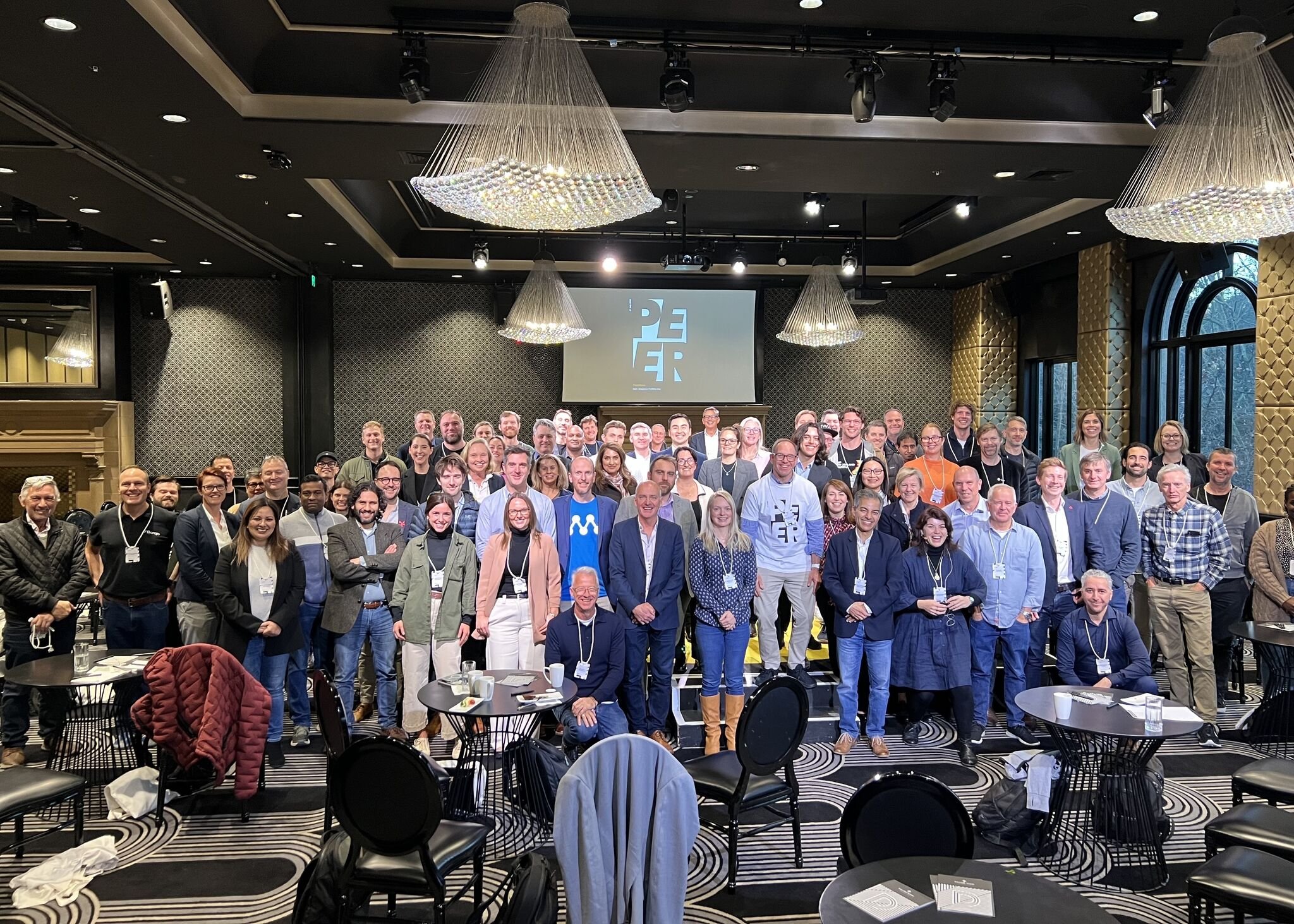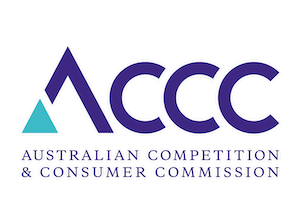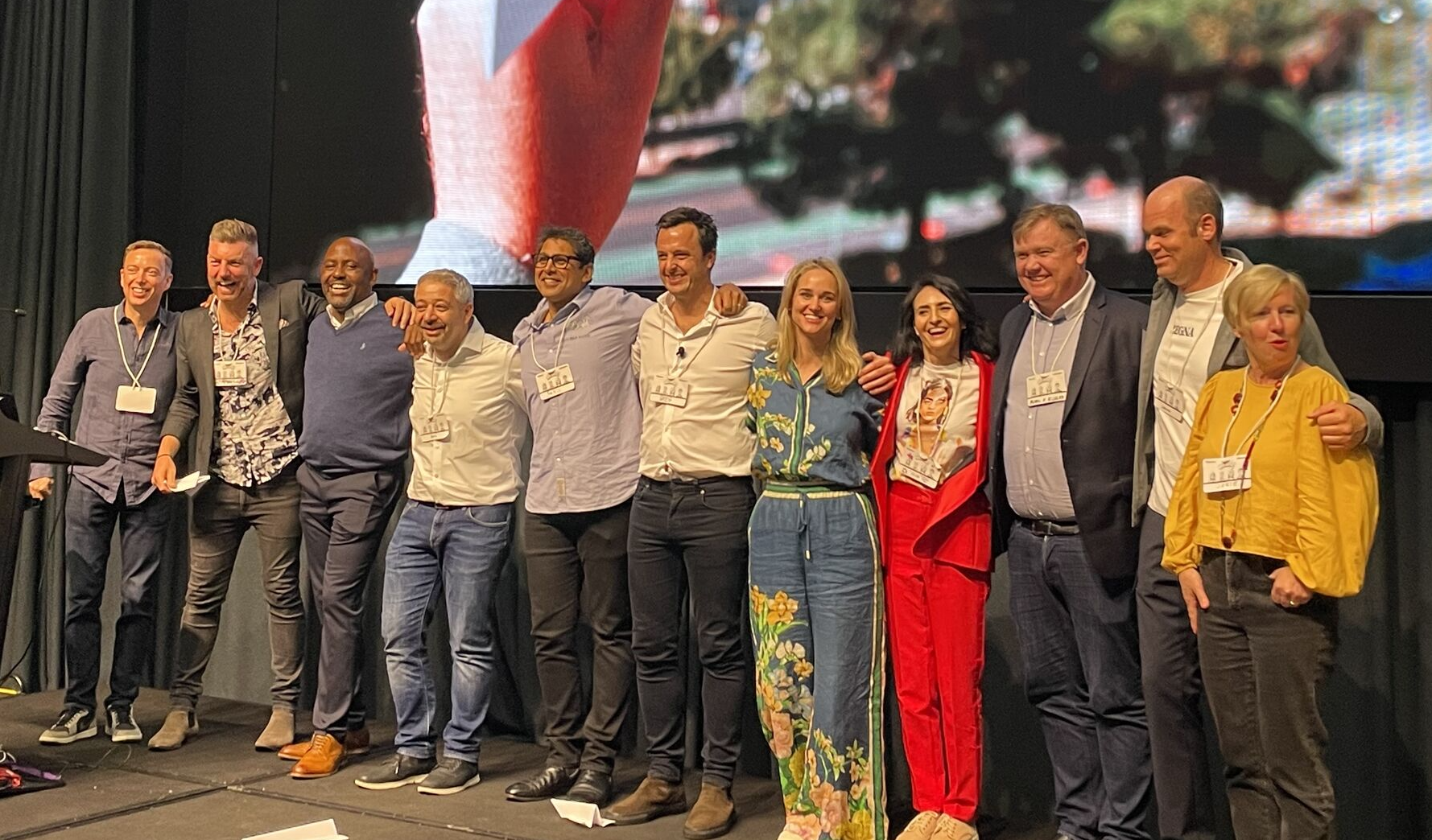
Sustainable Event Solutions
(Australia-Wide Services)
Eco-Friendly Name Badges & Lanyards for Sustainable Events in Australia

Real Impact, Real People
Organisations across Australia are ditching single-use plastics & choosing Terra Tag for their events. Here are a few inspiring examples of how our clients led by example:
Tourism Australia for an international travel conference, opted for our plantable seed paper badges made from upcycled old maps. It was a hit! The creative badges aligned with their theme & eliminated plastic waste. Result: an estimated 66 kg CO₂ reduction compared to using new plastic badges & hundreds of herbs planted afterward by attendees.
The Australian Competition & Consumer Commission made a bold green move by swapping plastic name tags for Terra Tag’s recycled paper badges at a summit. They demonstrated that formal government events can embrace sustainability. Roughly 75 kg of CO₂ emissions were avoided & the ACCC set a precedent for other agencies to follow suit.
The International Convention Centre Sydney integrated our badges & lanyards into a forum for event planners. By doing so, they showcased to industry peers how practical & polished eco-friendly event supplies are. They saved about 105 kg of emissions & positioned themselves as a champion of sustainable events.
Whether it’s a corporate giant or a government body, sustainable practices in events are achievable & yield significant benefits.
Eco-Friendly Event Badges, Delivered Australia-Wide
From Sydney’s harbor-side conventions to corporate events, Terra Tag delivers top-notch sustainable products swiftly & reliably. We understand event timelines & logistics – no matter where you are, we make sure your badges & lanyards arrive on time, ready to use.
Fast Shipping & Turnaround: We produce & dispatch from Queensland & partner with express couriers. Melbourne, Sydney, Brisbane, Canberra, Adelaide, Perth – we’ve shipped everywhere. Most metro areas receive orders within 1-3 days after dispatch. Even remote areas get their Terra Tags without long waits.
Personalised Support: Not in a major city? No problem. We treat a sustainability officer in Darwin or Hobart with the same attentive service as one in Sydney CBD. We’ll work out the best shipping & production plan to meet your date. It’s like having a local supplier, because we bring that Aussie mate mentality to every interaction.
Local Understanding: Different regions may have different priorities. Running a community event in far north Queensland during wet season? We might recommend our sturdier recycled badges over seed paper due to humidity, for instance. Aiming for zero-waste in Byron Bay? We know that vibe & can suggest extra touches like seed paper wristbands. Terra Tag might be national, but we pay attention to local context & needs.
Bringing Sustainability to Every Corner of Events
No matter where you are in Australia, our goal is to make it easy to host a sustainable event. We’ve compiled tips & resources to help you green your event beyond just name badges:
Planning Guides: Check out our blog for the “Ultimate Sustainable Event Planning Checklist” – it covers everything from venue selection & transport to catering & waste management. We break down steps like choosing green vendors, reducing energy use & engaging attendees in your mission. Learn 7 ways that green initiatives can pay off at corporate events.
Supplier Network: Need recommendations for compostable catering in Sydney or solar-powered stages in Perth? We’ve been in the sustainable events space a while & can often point you toward reputable partners or ideas in your area. Just ask us – we love connecting our clients with the broader eco community.
Compliance & Certifications: If you’re aiming for an official green event certification (like ISO 20121 or Council-run sustainability programs), using Terra Tag products will help tick those boxes. We can provide documentation on materials (like recycled content percentages, compostability) to support your compliance reporting.
Hosting sustainable events isn’t just about guilt-free choices; it’s also a powerful statement to attendees, stakeholders & the community. It shows leadership & innovation. Terra Tag is proud to be part of that journey for so many events across Australia.
Ready to make your next event a sustainable success? Explore our services by city/region below or reach out to discuss your vision. Together, let’s create events that are remembered for the experience & not the waste they leave behind.
(Browse our location-specific pages for details on Terra Tag services in: Brisbane, Sydney, Melbourne, Adelaide, Canberra, Perth & more. No matter where you are, we’re excited to work with you!)


Eco-Friendly Event Badges, Delivered Australia-Wide
Planning an event in Melbourne, Sydney, Brisbane—or beyond? Terra Tag makes it easy with fast, reliable delivery & ready-to-go badge kits, designed with purpose & planet in mind.
Sustainable Event Badges for Sydney Conferences
At corporate events in Sydney, our biodegradable lanyards & name badges are a favourite among organisers who want more than just functionality—they want zero waste event practices.
Eco-Friendly Name Badges for Melbourne Events
Melbourne’s event scene is buzzing with green energy. From bustling expos to strategy workshops at the MCEC, our recycled & plantable event badges help you keep it eco without sacrificing style.
Brisbane’s Go-To for Plantable Name Badges
Brisbane workshops are blooming—literally. Our seed paper name badges sprout into wildflowers, making your event not just memorable, but measurable in its green impact.
Recycled Name Badges for Adelaide Events
Our recycled paper badges give your Adelaide event credibility without the carbon. Designed for venues like the Adelaide Convention Centre, with quality that feels as good as it looks.
Custom Name Badges for Canberra Events
Whether it’s Parliament House or the National Convention Centre, customised, zero-waste badges from Terra Tag help Canberra events stay compliant & eco-conscious.
Business paper, meet badge. Our Perth-ready eco tags turn office waste into smart, sustainable ID solutions—perfect for professional summits with an environmental edge.
Eco-Friendly Name Badges for Perth Events
How to Plan a Sustainable Event (The Essentials)
Checklist: How to host an eco-friendly event
Whether you're hosting a corporate summit or a community gathering, planning a sustainable event doesn't have to be a headache. Here's a quick guide to the most impactful steps:
1. Set Your Sustainability Goals Early
Choose green-certified venues, budget for eco-choices & engage stakeholders in advance. Clear goals = stronger results.
2. Pick the Right Vendors
Support local suppliers with eco credentials. Ask about waste management, certifications & ethical practices.
3. Use Sustainable Materials
From plantable name badges to reusable tableware, choose items that don’t end up in landfill.
4. Manage Waste Like a Pro
Go for zero-waste: provide composting, clearly marked bins & educate attendees with signage.
5. Rethink Transport
Encourage public transport, carpooling, or shuttles. Even offer incentives for low-carbon travel.
6. Serve Green on the Plate
Think seasonal menus, local catering & reusable or biodegradable utensils. Bonus points for plant-based options.
7. Keep Attendees Engaged
Promote your green efforts, educate through social & signage & offer digital programs to cut paper waste.
8. Reflect & Improve
After the event, collect feedback, measure your impact, then celebrate your eco-wins.
Want the full checklist? Explore our sustainable event planning guide
Planning a Greener Event? We’ve Got You.
Sustainability isn’t just a box to tick. It’s how we connect people with purpose. Explore more ideas & how-to’s on our blog:
Alternatives to Plastic name Badges for Events

Planning a Sustainable Event? Your Top Questions, Answered
-
A: Sustainability isn’t all-or-nothing—it’s about making better choices at every step. From swapping plastic name badges for compostable ones, to sourcing local catering & offering recycling options, it all adds up. You don’t have to be perfect to make a difference. Starting small is still starting strong.
-
A: Name badges, signage, single-use plastic & lanyards are low-hanging fruit. These are items every guest interacts with & they often end up in landfill. Switching to compostable or recyclable alternatives can instantly cut your waste without complicating your logistics.
-
A: Start with the benefits: less waste, less guilt, better brand perception. Highlight that sustainable doesn’t mean boring—it can still be polished, professional & even more meaningful. If they’re worried about cost? Focus on the full-picture ROI: reduced clean-up, simpler ordering & a better guest experience. See how AI can streamline logistics while reducing your event’s footprint.
-
A: Yes. We’d argue they look better. Terra Tag’s eco-friendly name badges are professionally printed on premium hand made card stock & are designed to impress. You don’t have to sacrifice style to do what’s right for the planet.
-
A: That’s totally normal. Most of our customers are juggling 87 other things. That’s why we make it easy: pre-assembled badges, fast turnaround & no last-minute panic. Start with just one swap—like compostable name tags & build from there.
-
A: Use your badge choice as a talking point—guests absolutely love them. You can include sustainability stats (e.g., “No plastic used. 100% recycled packaging. CO2 emissions savings. Seed paper that grows.”) in your wrap-up decks, social posts, or internal reporting. We’re happy to help you articulate the impact.
-
A: Plastic badges can hang around for centuries—ours don’t. Terra Tags are made from paper that’s either recycled or embedded with seeds, so they break down naturally after use. They’re durable enough to survive multi-day events, print beautifully & leave a lasting impression without the environmental hangover.
-
A: Both—every Terra Tag badge is fully recyclable & compostable. Our recycled & seed paper badges break down in soil, & both can go straight into standard recycling streams. No plastic, no landfill guilt—just good choices that don’t stick around for 500 years.
-
-
A: We love our global friends—but Australia’s quarantine laws mean we can’t ship seed paper overseas. If you're based in Australia, though—you’re in luck. We’re local, fast & friendly.









